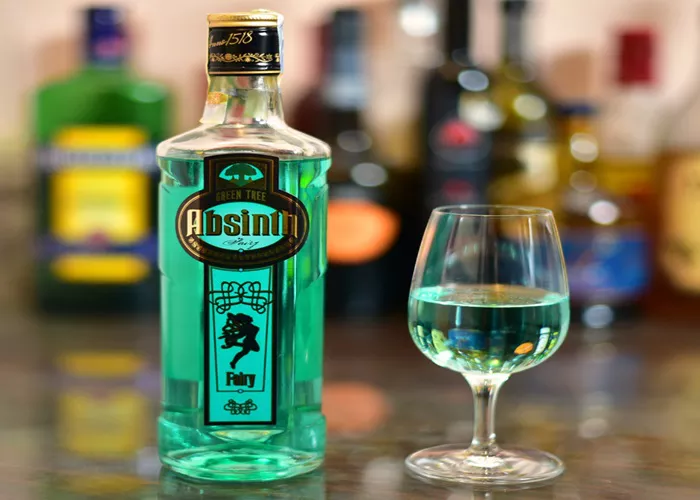Absinthe is a unique and often misunderstood spirit with a long and storied history. Known for its distinctive green color and high alcohol content, absinthe has a reputation for being a potent and sometimes dangerous drink. However, when consumed in moderation and paired with the right accompaniments, absinthe can be a delicious and enjoyable experience. In this extensive essay, we will explore what you can drink with absinthe, from traditional pairings to modern twists.
Introduction to Absinthe
Absinthe is a distilled spirit made from a combination of herbs, including wormwood, anise, and fennel. It has a high alcohol content, typically ranging from 45% to 75% ABV. Absinthe was popularized in the late 19th and early 20th centuries, particularly in France and other European countries. However, its popularity declined due to concerns about its alleged hallucinogenic properties and its association with bohemian and artistic subcultures.
1. History of Absinthe
The history of absinthe dates back to ancient times, when wormwood was used for medicinal purposes. In the 18th century, absinthe began to be produced on a larger scale, and it quickly became a popular drink among artists, writers, and intellectuals. By the late 19th century, absinthe had become a cultural phenomenon, with its own rituals and traditions.
2. Production of Absinthe
Absinthe is made by distilling a mixture of herbs and alcohol. The most important ingredient is wormwood, which gives absinthe its characteristic bitter flavor. Other herbs, such as anise, fennel, and mint, are also added to create a complex and aromatic blend. After distillation, absinthe is typically diluted with water to reduce its alcohol content and enhance its flavor.
Traditional Pairings with Absinthe
In the past, absinthe was often consumed with specific accompaniments as part of a ritualized drinking experience.
1. Water
Water is the most traditional accompaniment to absinthe. When absinthe is diluted with water, it turns a milky white color, a process known as “louche.” This louche effect is caused by the essential oils in the absinthe reacting with the water, creating a cloudy appearance. Diluting absinthe with water also reduces its alcohol content and makes it more palatable.
2. Sugar
Sugar is often added to absinthe to balance its bitterness. Traditionally, a sugar cube is placed on a slotted spoon and drizzled with water, which then dissolves the sugar and mixes with the absinthe. This sweetened absinthe is known as an “absinthe suisse.”
3. Lemon or Lime
A slice of lemon or lime can be added to absinthe to add a citrusy flavor and freshness. This is a popular pairing in modern bars and can be a refreshing alternative to sugar.
Modern Pairings with Absinthe
Today, there are many creative ways to pair absinthe with other drinks and ingredients.
1. Cocktails
Absinthe can be used as an ingredient in a variety of cocktails, adding a unique flavor and complexity. Some popular absinthe cocktails include the Sazerac, the Corpse Reviver #2, and the Absinthe Frappé.
2. Beer
Pairing absinthe with a light beer can create a refreshing and unique combination. The bitterness of the absinthe complements the carbonation and maltiness of the beer.
3. Wine
A glass of dry white wine can be a good pairing for absinthe, as the acidity and fruitiness of the wine can balance the strong flavors of the spirit.
4. Soft Drinks
For a non-alcoholic option, absinthe can be paired with soft drinks such as soda water, tonic water, or ginger ale. These combinations can be refreshing and lower in alcohol content.
See Also: What Do You Mix With Absinthe? A Full Guide
Food Pairings with Absinthe
Absinthe can also be paired with food to enhance the dining experience.
1. Cheese
Strong cheeses such as blue cheese or aged cheddar can pair well with absinthe, as their rich flavors complement the bitterness of the spirit.
2. Charcuterie
Cured meats such as salami, prosciutto, and chorizo can be a good pairing for absinthe. The saltiness and savory flavors of the charcuterie contrast with the herbal notes of the absinthe.
3. Seafood
Light and delicate seafood such as oysters, shrimp, or scallops can be paired with absinthe for a refreshing and elegant combination. The brininess of the seafood can balance the strong flavors of the spirit.
4. Desserts
Rich desserts such as chocolate cake, tiramisu, or crème brûlée can be paired with absinthe for a decadent treat. The sweetness of the desserts can balance the bitterness of the absinthe.
Risks and Precautions
While absinthe can be a delicious and enjoyable drink when consumed in moderation, it is important to be aware of the risks associated with its high alcohol content.
1. Alcohol Poisoning
Drinking too much absinthe can lead to alcohol poisoning, which can be life-threatening. It is important to drink absinthe in moderation and pace yourself.
2. Hallucinations and Side Effects
Although absinthe is no longer believed to have hallucinogenic properties, excessive consumption can lead to side effects such as dizziness, nausea, and headaches.
3. Legal Restrictions
In some countries, absinthe is subject to legal restrictions due to its high alcohol content. It is important to be aware of the laws in your area before consuming absinthe.
Conclusion
In conclusion, absinthe can be a unique and enjoyable spirit when paired with the right accompaniments. Whether you prefer traditional pairings such as water and sugar or modern twists like cocktails and food pairings, there are many ways to enjoy absinthe. However, it is important to consume absinthe in moderation and be aware of the risks associated with its high alcohol content. With proper caution and enjoyment, absinthe can be a delicious addition to your drinking repertoire.
You might be interested


